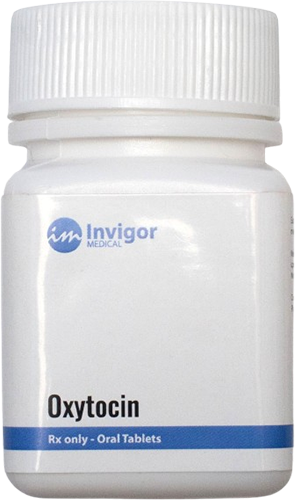The neuropeptide oxytocin, also known as the “love hormone”, works to facilitate emotional bonding, helps in childbirth, and supports social interaction. Research on oxytocin as a therapeutic agent for adult social and emotional functioning has become increasingly popular in recent years. The most promising advancement in oxytocin research involves nasal spray delivery, which enables the hormone to pass through the blood-brain barrier to directly impact brain structures like the amygdala, hippocampus, and prefrontal cortex. Peer-reviewed studies have demonstrated that intranasal oxytocin exhibits therapeutic potential for treating mood disorders, aids with addiction, as well as social dysfunction and cognitive impairment.
The safety profile of oxytocin is generally favorable in controlled settings; however, as with many other medications, concerns remain regarding off-label use, where risks such as context-dependent antisocial effects, anxiety, and unknown long-term consequences are highlighted. This article synthesizes the current evidence on the clinical efficacy and risks of intranasal oxytocin administration in adults, emphasizing both promising therapeutic benefits and the need for caution.
Table of Contents
What is Intranasal Oxytocin?
The delivery system of intranasal oxytocin involves administering oxytocin through the nasal passages without any invasive procedures. The hormone enters the brain rapidly, bypassing the blood-brain barrier to reach key structures such as the amygdala, hippocampus, and prefrontal cortex—regions that control emotions, social behavior, and cognitive processes. Multiple clinical investigations have shown this delivery method is effective and well tolerated in both healthy individuals and patients with medical conditions.
Social and Emotional Enhancement
The reviewed literature consistently shows that intranasal oxytocin improves social cognition abilities. Clinical trial participants displayed improvements in emotion recognition, increased trust levels, and enhanced social cue perception. Notably, oxytocin helps people with autism spectrum disorder (ASD) and social anxiety disorder (SAD) who struggle with interpreting emotions in others. Research suggests oxytocin may affect social brain networks, enabling patients to navigate social situations with greater ease and reduced anxiety.
Mood Regulation and Anxiety Reduction
The anxiolytic (anxiety-reducing) effect of oxytocin is another promising area of research. Some studies demonstrate that intranasal oxytocin reduces cortisol, the body’s primary stress hormone, following social or emotional stress. The limbic system, which controls emotional responses, appears to be a key site of oxytocin’s calming effects. Nasal oxytocin has been shown to dampen reactions to negative stimuli and promote a more balanced mood state in individuals with generalized anxiety disorder and PTSD.

Cognitive and Neuroprotective Effects
The benefits of intranasal oxytocin extend beyond emotional health; research suggests it can support cognitive performance and neuroprotection. Studies show oxytocin administration can improve attention, working memory, and verbal recall—especially in people with traumatic brain injury, early-stage dementia, and schizophrenia. Preclinical data suggest oxytocin could be a neuroprotective agent for Alzheimer’s disease due to its anti-inflammatory and stress-buffering effects.
Aid in Addiction Recovery
A growing body of research indicates intranasal oxytocin may help treat addiction. By influencing dopamine pathways involved in reward and craving, oxytocin could be a valuable tool for individuals recovering from substance abuse. Studies report decreased withdrawal symptoms and reduced drug-seeking behavior, especially in alcohol and opioid addiction cases.
Strengthening Relationships and Intimacy
With its direct influence on trust, bonding, and affection, oxytocin naturally supports relationship enhancement. Clinical trials show that oxytocin treatment can improve partner communication and sexual satisfaction, making it a potential tool for couples therapy.
For individuals over 50 seeking ways to boost connection and libido, see Improve Your Sex Drive After 50.
Who Might Benefit Most?
Intranasal oxytocin can help people build stronger emotional bonds and foster calm, open communication—benefits valuable in both romantic relationships and social contexts. When paired with psychotherapy, it may help reduce depressive and anxiety symptoms and improve therapeutic alliance. It may also reduce Alzheimer’s disease pathology, making it promising for at-risk older adults.
Safety and Tolerability
The safety profile of intranasal oxytocin is favorable, with mild side effects such as nasal irritation or headache reported. No serious adverse events were noted in reviewed studies, and both short-term and longer-term use appear well tolerated. However, it’s important to consult a healthcare provider before starting therapy, especially for those with underlying medical or psychiatric conditions.
Conclusion
Scientific evidence on intranasal oxytocin’s therapeutic and neuroprotective properties continues to grow. From enhancing social cognition and reducing anxiety to supporting cognitive health and intimacy, it offers unique benefits for both medical treatment and personal wellness. As with any therapy, informed use and professional guidance are key to maximizing its benefits while minimizing risks.












